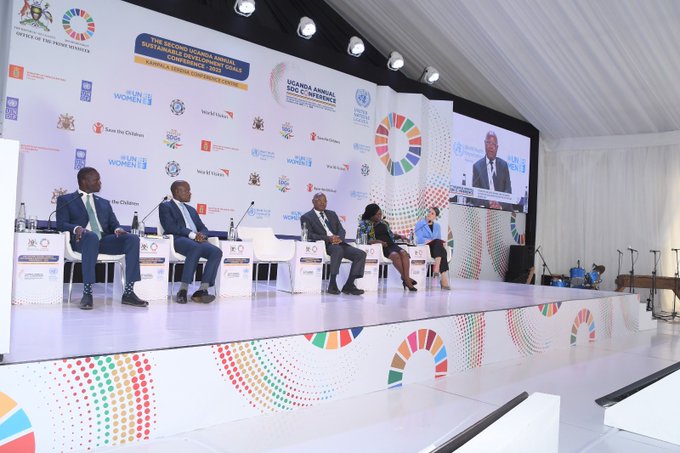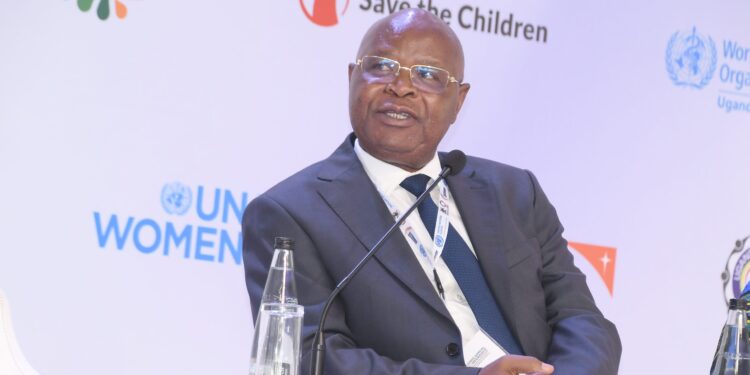The executive director of the Uganda Bureau of Statistics, Dr Chris Mukiza, has said UBOS is embracing geospatial technologies, artificial intelligence and data science on top of traditional data sources.
He was Thursday speaking during a high-level panel discussion at the second Sustainable Development Goals (SDG) conference held at Serena Hotel in Kampala.
The conference kicked off with findings from an assessment which shows that Ugandans are being left behind due to: 1) Discrimination 2) Geography 3) Vulnerability to shocks 4) Governance and 5) Socio-economic status.
SDGs are for all and “Leaving No One Behind” is a key principle and promise of the 2030 Sustainable Development Goals.
The Second Uganda Annual SDG Conference 2023 was held under the theme: “Promoting Inclusive National and Continental Actions for Accelerated Delivery on the SDGs and Agenda 2063.”

He said the few policy indicators ought to be instrumental in policymaking to ensure no one is left behind.
“Policymakers should use statistics to inform decision-making; you cannot manage what you cannot measure. UBOS will increase SDG indicators from 120 to 150 by the end of the year,” Dr Mukiza said.
He said UBOS will promote data uptake and the use of digital technology.
He spoke on how Data and Statistics are critical for the effective implementation of SDGs and National Development plans in the country.
“This 2023, UBOS will be conducting the National Population Census where many indicators will be identified and persons from all communities will be counted.”
These include refugees and minority communities among others, he said, adding that this will enable the government to have accurate statistics which will be used fully in decision-making and policy formulation.

He went on: “We have several interventions to standardize how to collect and record the missing data, there is a need to strengthen administrative data sources.”
According to him, there are several players that contribute to the data collected such as the different agencies that collect uniform data.”
Big Data Facility
He further highlighted that the bureau, in its efforts to “Leave No One Behind” through data and statistics, is using data obtained using traditional sources like censuses, surveys, and administrative data and also embracing other non-traditional data sources e.g. geospatial technologies, artificial intelligence and data science.
This, he believes, will ensure no one is left behind.
“We have taken into consideration the need for a facility for big data and we shall set up a data science laboratory to mainstream statistics.

He said the Uganda Bureau of Statistics has had several interventions with the Ministry of Health to liaise with strengthening the health system data collection from all Regions in the country.
“We can now access health data fed into their systems daily in real-time. We seek to work hand in hand to strengthen the administrative health registry. We have engaged also several other external Stakeholders to strengthen the administrative data systems.”
He said UBOS has taken steps to build inclusive data ecosystems to ensure the visibility and inclusion of communities within Statistics, further explaining how Data and Statistics are critical for the effective implementation of SDGs and National Development plans.
“When the Sustainable Development Goals came on board, we adjusted our statistics to the National Development Plan I & III and developed a plan to cover the National Statistical System for end users of the data. The data generated is instrumental in developing strategic plans to cover the indicator framework of the National Development Plan.”












